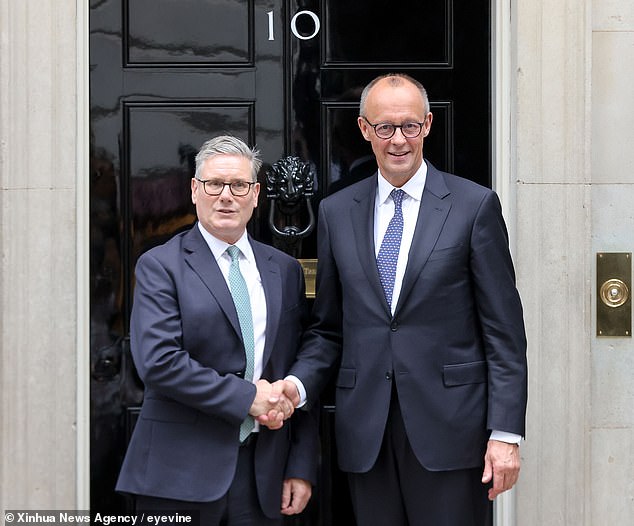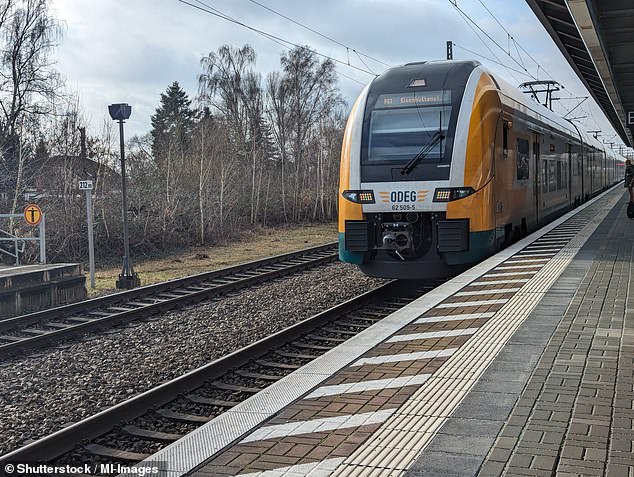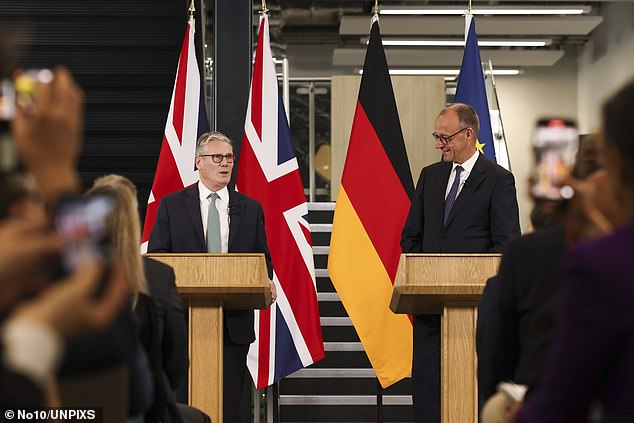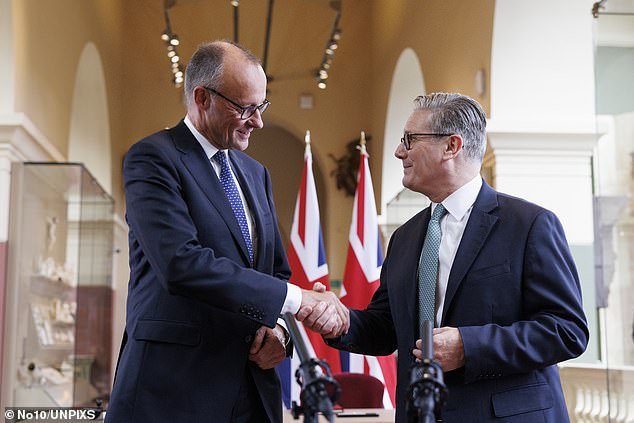The United Kingdom and Germany have signed a landmark treaty that will pave the way for a direct rail link between London and Berlin.
Dubbed The Kensington Treaty, the agreement is said to ‘fundamentally change how millions of people travel’, with hopes the rail link will be up and running by the early 2030s.
The agreement marks a significant shift in relations between the two nations, and was sealed during German Chancellor Friedrich Merz’s first official visit to the UK on 17 July.
The signing ceremony took place at the Victoria and Albert Museum in Kensington, alongside Prime Minister Sir Keir Starmer.
One of the deal’s key elements, as outlined in the UK governments Plan for Change, is the commitment to establish a long-distance, direct passenger rail service between the two capitals, according to The Times.
It would also provide a direct link between London and other major German cities, such as Frankfurt.
A joint UK-Germany transport taskforce will now assess the infrastructure, border and security needs required to establish the route.
The taskforce will also look into commercial and technical requirements, such as safety standards and the potential to collaborate with rail operators to make direct services a reality.

The United Kingdom and Germany have signed a landmark treaty that will pave the way for a direct rail link between London and Berlin (Pictured: Keir Starmer and German Chancellor Friedrich Merz on 17 July)

Dubbed The Kensington Treaty, the agreement is said to ‘fundamentally change how millions of people travel,’ with hopes the rail link will be up and running by the early 2030s (Pictured: a train of the regional express line RE 1 to Eisenhüttenstadt)
Transport Secretary, Heidi Alexander, said: ‘We’re pioneering a new era of European rail connectivity and are determined to put Britain at the heart of a better-connected continent.
‘The Brandenburg Gate, the Berlin Wall and Checkpoint Charlie – in just a matter of years, rail passengers in the UK could be able to visit these iconic sights direct from the comfort of a train, thanks to a direct connection linking London and Berlin.
‘This landmark agreement – part of a new treaty the Prime Minister will sign with Chancellor Merz today – has the potential to fundamentally change how millions of people travel between our two countries, offering a faster, more convenient and significantly greener alternative to flying.’
Eurostar and other rail operators initially put expansion plans in serving on hold following the UK’s departure from the EU due to the need to address logistical and operational challenges related to border controls and new regulations.
While expansion was initially delayed, Eurostar has since announced plans to launch direct services to Frankfurt and Geneva in the early 2030s, and is also working on a direct route to Berlin.
Meanwhile, passengers will have more choice of international train services through the Channel Tunnel, the rail regulator said – threatening Eurostar’s 31-year monopoly.
The Office of Rail and Road (ORR) revealed it will allocate spare capacity at Eurostar’s Temple Mills maintenance depot in Leyton, East London, to either one new operator or Eurostar itself, which has plans to grow.
Several companies are developing plans to run passenger trains through the tunnel – rivalling Eurostar, which has held a monopoly since the infrastructure opened in 1994.

The agreement marks a significant shift in relations between the two nations, and was sealed during German Chancellor Friedrich Merz’s first official visit to the UK on 17 July

The signing ceremony took place at the Victoria and Albert Museum in Kensington, alongside Prime Minister Sir Keir Starmer
Organisations developing proposals for rival services include billionaire entrepreneur Sir Richard Branson’s Virgin Group; Italy’s state-owned railway company FS Italiane Group; and Gemini Trains, which is chaired by Labour peer Lord Berkeley.
Access to depot space for maintaining and storing trains is a critical requirement for new operators or Eurostar to boost services. It is the only UK site able to support trains that can be used in the Channel Tunnel and on tracks in continental Europe.
However, the ORR also said it believes ‘there is room for at most one new operator, or for Eurostar to grow’ – meaning not all the rival services are likely to succeed. The regulator has urged applicants to submit detailed plans on how to allocate capacity.
From London St Pancras, Eurostar currently serves Paris, Lille, Brussels, Rotterdam and Amsterdam, as well as running seasonal ski trains to the French Alps.












